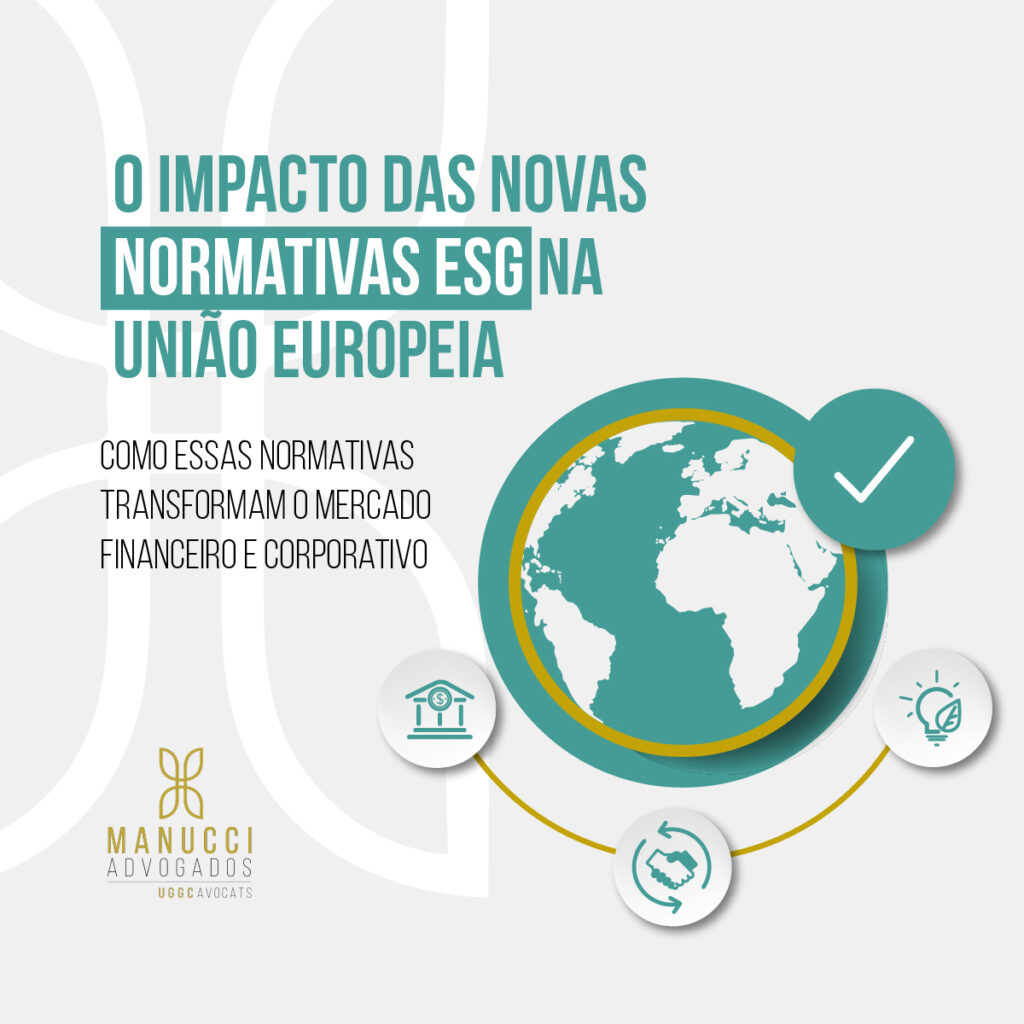Latest updates since November 28, 2022, in the European Union
The new ESG (Environmental, Social, and Governance) regulations have become a priority for the financial market and businesses since November 28, 2022, when the European Union (EU) significantly advanced its commitment to sustainability and corporate social responsibility. This progress was hightlighted by the final approval of the Corporate Sustainability Reporting Directive (CSRD), which aims to enhance corporate transparency regarding sustainability by modifying and expanding the requirements previously established by the 2014 Non-Financial Reporting Directive (Directive NFR 2014/95/EU).
This context has brought increasing regulatory pressure to promote accountability, sustainability, and social responsibility. Key recent regulations and updates include the Corporate Sustainability Reporting Directive (CSRD), the European Taxonomy, and the Sustainable Finance Disclosure Regulation (SFDR), which are being applied more rigorously to align business practices with the EU’s environmental commitments and prevent greenwashing. About them:
– CSRD (Corporate Sustainability Reporting Directive)
At the EU level, the Corporate Sustainability Reporting Directive (CSRD) came into effect on January 5, 2023, creating the first EU-wide obligation for sustainability reporting. Reports must include non-financial information necessary for a comprehensive understanding of the company’s sustainability. This standard is more detailed and includes requirements related to diversity, climate change, and human rights.
The amendment to the CSRD aims to minimize gaps in existing regulations to provide financial markets with reliable, relevant information and guidelines necessary to direct private capital toward investments that support the green and social transition. This responds to the growing demand for information that allows investors and other stakeholders to make informed decisions about corporate sustainability.
Additionally, the directive includes specific provisions for listed SMEs, with a temporary exemption option until 2028. It also applies to companies outside the EU with net turnover exceeding €150 million within the EU and with a branch or subsidiary exceeding certain thresholds, demonstrating the extraterritorial scope of the CSRD Directive.
The European Financial Reporting Advisory Group (EFRAG) was responsible for developing the European Sustainability Reporting Standards (ESRS). The European Commission has begun adopting these ESRS through delegated acts before June 30, 2023, following consultations with Member States and various European bodies.
The implementation of the CSRD Directive will occur in phases, starting in 2025 for fiscal years 2024 for large companies already subject to the Non-Financial Reporting Directive (NFR Directive) and extending to 2029 for some non-European companies. EU Member States have 18 months after the publication of the Country-by-Country Cooperation Directive in the EU Official Journal to incorporate this directive into their national legislation, marking a turning point toward a more sustainable and transparent economy in the European Union.
In summary, this directive expands sustainability reporting requirements to a broader range of companies (around 50,000 companies, including SMEs) and introduces the obligation for non-financial reporting for certain large companies. From 2024 onwards, all management companies – excluding micro-enterprises – will also be subject to this reporting obligation under harmonized standards (ESRS – European Sustainability Reporting Standards). They must also present a sustainability report for all companies with net turnover in the EU of €150 million and at least one branch or subsidiary in the EU exceeding specific thresholds.
Another significant point is that the European Commission has proposed a directive to strengthen corporate sustainability due diligence (CSDD). Interinstitutional negotiations on this proposed directive, which also applies to non-European companies, are ongoing.
– European Taxonomy (EU 2020/852)
The European Taxonomy is a classification system that defines which economic activities are sustainable, guiding investors toward projects and companies that help reduce environmental impact. The Taxonomy enables greater capital allocation to activities aligned with the EU’s sustainability and carbon neutrality goals by 2050.
– SFDR (Sustainable Finance Disclosure Regulation) – EU 2019/2088
EU Delegated Regulation 2022/1288 aims to harmonize asset management and investment advisory practices to strengthen end-investor protection and related transparency requirements. Companies are now required to disclose non-financial information at both entity and product levels on their websites, periodic reports, and pre-contractual documents. Meanwhile, the European Commission has integrated sustainability by adopting delegated acts to amend existing financial regulations, such as UCITS, AIFMD, or MiFID II. Sustainability and ESG risks must now be integrated into all entity processes.
This regulation mandates asset managers and financial institutions to disclose how they consider ESG risks in their investment processes, promoting transparency in sustainable financial products. Financial products are categorized into three groups: Article 6 (minimum ESG risk), Article 8 (promoting environmental or social characteristics), and Article 9 (specific sustainability objectives).
Current Consequences in the European Union
These initiatives impose stricter ESG reporting structures for companies operating in the EU. They are required to disclose not only their environmental impact but also how their activities contribute to the EU’s Sustainable Development Goals. This involves an unprecedented level of transparency and detail, forcing companies to integrate ESG considerations more deeply into their corporate strategies and financial reporting.
The Green Deal and the Taxonomy Regulation also have an impact beyond the EU’s borders, as global companies operating in the European market must comply with these standards. This creates a cascading effect, encouraging broader adoption of ESG reporting practices worldwide.
These regulations significantly impact on the corporate and financial landscape in Europe. Companies face increased compliance costs and reporting complexity but, in turn, can attract new investors interested in sustainable practices. The implementation of these standards also leads to:
- Increased Transparency: Companies are encouraged to be more transparent about their environmental and social impacts, strengthening investor and consumer trust.
- Changes in Capital Allocation: The Taxonomy and SFDR are redirecting capital toward sectors and companies with more sustainable practices, impacting the financing of traditional sectors.
- Innovation and Energy Transition: Many companies need to innovate in their processes to meet new standards, accelerating the energy transition and adopting more responsible practices.
European ESG standards are seen as a global benchmark, pressuring other markets to adopt similar policies and positioning Europe as a leader in the sustainability agenda.
(1) Interesting Articles:
– As regulações ESG da União Europeia
– ESG: What are the recent regulatory developments for funds and asset managers?
– Greenwashing in finance: Can we dare to finance the transition?
– Electra: What is the strategy for sustainable financing?
– Sylvie Gallage-Alwis Blog on Actu-Environnement










